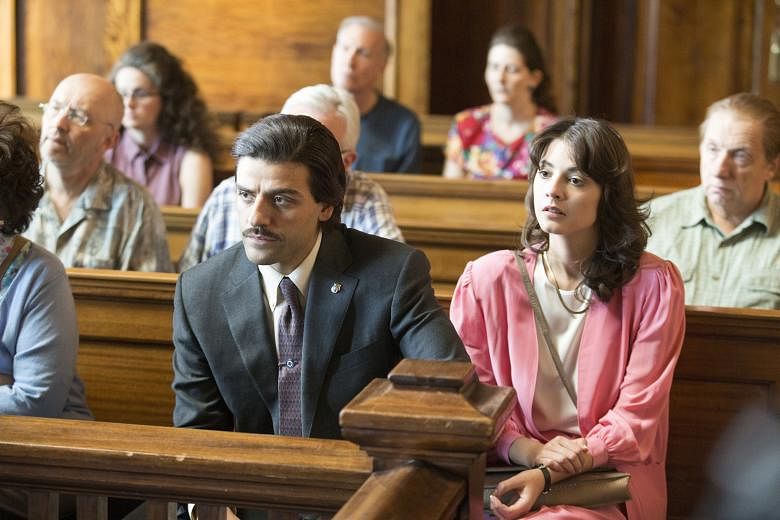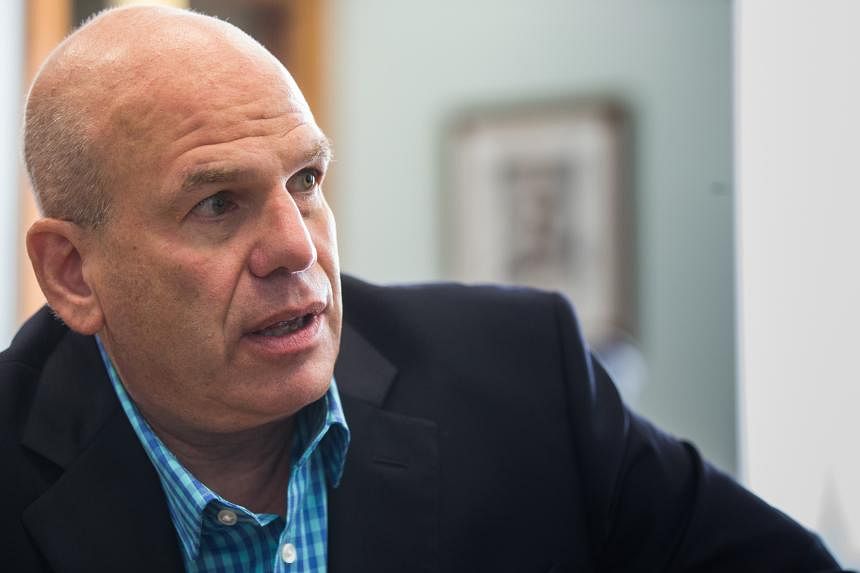Seven years on, the crime drama The Wire (2002 - 2008) is still hailed as one of the best television series ever made.
But many fans enjoyed it simply as a cool show about drug dealers, policemen and other colourful characters in the city of Baltimore, not realising it was also a searing critique of capitalism and other socio-economic institutions.
Speaking to Life in Los Angeles, the show's creator, David Simon - who has now come up with Show Me A Hero, a miniseries with similar leanings - says he does not mind that some viewers missed the bigger arguments, although this occasionally caused problems when he talked about his show.
The 54-year-old says at a Los Angeles press event for his new show: "I didn't begrudge people for watching The Wire on terms that weren't my own. The only places where I got in trouble was when they asked me what mattered to me.
"Sometimes, they would go so far as to say, 'Didn't you just love writing Omar?'" he says, referring to the murderous drug-dealer character who became a fan favourite.
"And you'd say, 'Well, it was fun writing them all, but I'm interested in other things.' And they'd go, 'How dare you?' It would be - Care about what we care about or don't tell us you don't care about what we care about."
Simon - who has created other politically minded series such as Treme (2010 - 2013), about the aftermath of Hurricane Katrina - has made peace with it.
"If you told stories for the people who were destined to understand them in all the respects that you'd hope, you wouldn't have much of an audience," he says.
"So, first, you want to bring them to the table and get them interested in the argument and whatever they take from the argument is kind of beyond your control."
Those arguments continue to interest the one-time reporter, who covered hard news in Baltimore before making a late-career switch to television.
Simon says he still has "some reservoir of shame" about leaving journalism, which is why it is important to him to do stories like the new show, "rather than construct something that would be a more viable entertainment", and to get the facts right while he is at it.
That is why he chose to spotlight another weighty issue for his new six-part miniseries Show Me A Hero. Debuting in Singapore today on HBO (StarHub TV Channel 601), it stars Oscar Isaac and Winona Ryder and follows the twists and turns in a racially charged public housing debate in New York in the 1980s.
Bill Zorzi, Simon's co-writer on this and The Wire, acknowledges that the desegregation of lowincome housing is not the sexiest of subjects and jokes that he is "not sure that there will be any appeal".
Simon adds he is far from certain viewers will appreciate its underlying arguments any more than they did with The Wire: "People are capable of missing anything and everything all the time. And you take the audience as you can get it.
"I was a journalist by training and I learnt some things about being a dramatist by accident. So I'm wearing two hats, but the journalistic impulse is what makes me want to do the work.
"It doesn't mean the characters don't have to be interesting, it doesn't mean I don't have to service the drama, but I am interested in the political and economic arguments. And if I can just get the argument out front every now and then... then I feel like I've done something subversive and I'd feel like there's no shame in me having slipped out of journalism and becoming a TV guy."
Journalism has also taught him not to expect anything to change as a result of his writing.
When he was young and starting out as a freelance reporter, the first story he sold to the Baltimore Sun newspaper was about a basketball coach at the University of Maryland who had been caught intimidating a woman sexually assaulted by one of his players.
The coach was caught red-handed and Simon wrote an article exposing the scandal, but, instead of being sanctioned, the man had his lucrative contract renewed.
At that moment, he says he "sort of grew up… and it taught me the biggest lesson about journalism early on", which was to jettison the whole notion of "I'm going to write things and the world's going to get better".
"No, I'm going to write things and they are going to be as close to true as I can make them and what the world does to it after that, that's not in my job description. And certainly, that's the same case when you're doing drama.
"I'm not trying to change the world, I'm trying to get the story right, so that it's worth the six hours that HBO gave it."
Still, "every now and then, you get surprised" about the impact of a TV show, he adds.
The Wire may have had some part to play in "ratcheting down the drug war in my country - you know, years later and after people had absorbed it".
"It became part of the argument about why the drug war had become this brutalising assault on the underclass. I'm proud that we were part of the discussion. But a lot of other things had a profound effect too, not least of which was the fact of two million Americans in prison."
And stories such as Show Me A Hero may be more important than ever, given the denigration of journalism as a profession in the United States and other countries.
"The institutional journalism that regional and local newspapers used to offer - that's been mostly eviscerated. When it comes to the systemic performance of our public institution, there used to be people there whose livelihood and profession it was to have sources in the school system or at city hall or the agencies or the police department, and to be able to call bull***t."
Over the years, many news organisations have stopped paying reporters to do this and new media platforms have not been able to fill the gap.
"The idea that a thousand bloggers with a thousand points of light are going to somehow compel a police department to reveal its secrets is just delusional.
"I don't believe in the amateur hour, I believe that journalism's a profession - you do it every day and you do it in a dispassionate way. That you do it just because it's your job, not because you care about the outcome."
• Show Me A Hero premieres today on HBO (StarHub Channel 601) at 8am, with an encore telecast at 8pm. It will also be available on HBO On Demand (StarHub TV Channel 602) the following day and HBO GO on StarHub Go.


